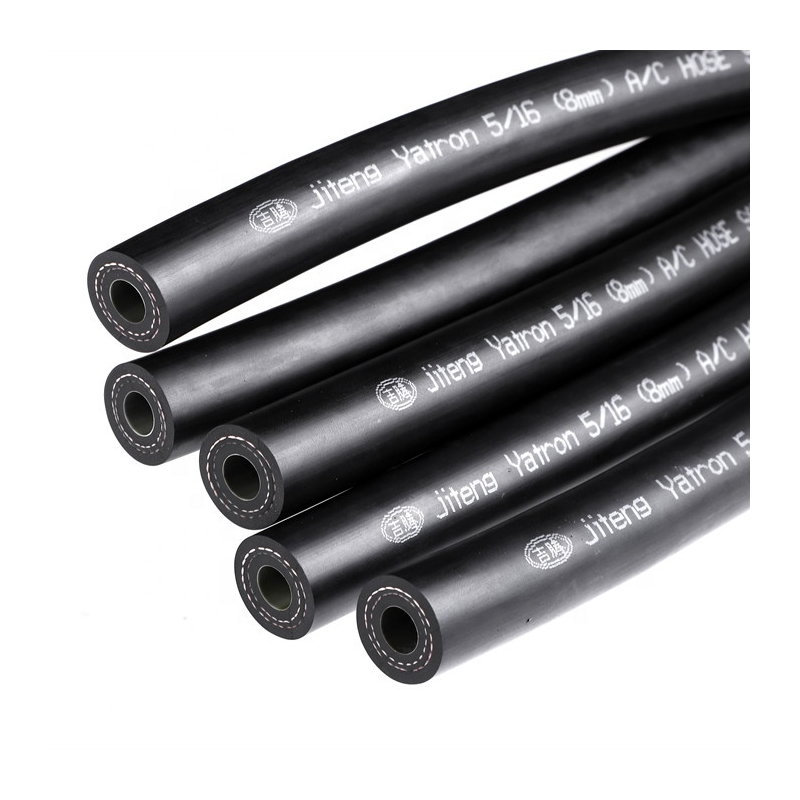Choosing the Right Fuel Hose for Gasoline Applications
Oct . 21, 2024 20:12 Back to list
Choosing the Right Fuel Hose for Gasoline Applications
The Essential Role of Gasoline Fuel Hoses in Automotive Applications
In the intricate assembly of modern vehicles, various components work together to ensure optimal performance, safety, and efficiency. Among these, gasoline fuel hoses play a crucial role in transporting fuel from the tank to the engine. This article delves into the significance of gasoline fuel hoses, their construction, maintenance, and the advancements in technology that continue to enhance their functionality.
Understanding Gasoline Fuel Hoses
Gasoline fuel hoses are specifically designed to carry gasoline while withstanding various environmental stressors. These hoses must maintain their integrity in the presence of hydrocarbons, particularly the volatile nature of gasoline, which can degrade materials not designed for such exposure. This requirement necessitates the use of high-quality materials, such as rubber or thermoplastic elastomers, which exhibit resistance to the chemical compounds found in gasoline.
Construction and Standards
The construction of gasoline fuel hoses includes several layers—each serving a unique purpose. The outer layer protects against abrasions, UV radiation, and environmental pollutants. The inner layer, which comes into direct contact with gasoline, is crafted to resist fuel permeation, thereby preventing fuel loss and maintaining engine efficiency. Sandwiched between these layers is often a reinforcing mesh, which adds structural integrity and flexibility, ensuring the hose can handle the pressures involved during fuel delivery.
In many countries, fuel hoses must meet rigorous industry standards to ensure safety and reliability. For instance, in the United States, the Society of Automotive Engineers (SAE) has established various specifications (like SAE J30) that dictate the performance and safety metrics for automotive fuel hoses, including burst pressure and fuel compatibility. Compliance with these standards not only guarantees that the hoses are fit for purpose but also reassures consumers and manufacturers about the quality of the products they use.
Maintenance and Inspection
gasoline fuel hose

Regular maintenance and inspection of gasoline fuel hoses are essential in preventing leaks and subsequent accidents. Fuel hoses can be prone to wear and tear due to factors such as heat cycles, vibration, and exposure to various chemicals. As hoses age, rubber can become brittle, and connections may loosen, resulting in hazardous fuel leaks.
Automotive experts recommend visually inspecting fuel hoses during routine vehicle maintenance for any signs of damage, such as cracks, bulges, or discoloration. It is also advisable to check the connections for tightness. Fuel hoses should be replaced according to the manufacturer’s recommendations, or at least every 5 to 7 years, or sooner if signs of wear are evident. It is better to be proactive about replacements rather than wait for a failure that could lead to dangerous situations or costly repairs.
Advances in Technology
In recent years, technological advancements have led to the development of more durable and efficient gasoline fuel hoses. Manufacturers are continuously exploring innovative materials and designs that enhance performance while reducing weight. Some modern hoses incorporate multi-layer structures, which not only improve resistance to fuel permeation but also enhance flexural performance under high temperatures.
Additionally, the rise of fuel injection systems in vehicles has prompted engineers to design hoses that can withstand higher pressures without compromising safety or functionality. These advancements not only enhance the efficiency of fuel delivery systems but also serve to improve overall vehicle performance and reduce emissions, contributing to a more environmentally friendly automotive landscape.
Conclusion
Gasoline fuel hoses might be small components in the vast machinery of automobiles, but their role is undeniably vital. They facilitate the efficient and safe transportation of fuel, ensuring that engines operate smoothly and effectively. With the importance of regular maintenance and the continuous evolution of hose technology, vehicle owners and manufacturers alike can ensure that their fuel systems remain reliable and safe. As the automotive industry progresses, investing in quality gasoline fuel hoses will continue to be a key factor in achieving enhanced performance and sustainability in vehicles.
